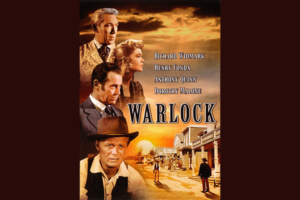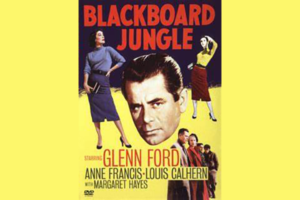
If we ever had children, my lady, what princely liars they would be!


Welcome to The Long Ships (1964). We are still following the Lionel Jeffries line. This movie is about Vikings so I love it no matter what. With big stars such as Richard Widmark and Sidney Poitier, it’s hard to go wrong. But they did seem to go wrong a great deal. Poitier said, “To say it was disastrous is a compliment.”
Richard Widmark played the role of Viking Rolfe, son of Krok. He was really too old for this role and turned it down a few times. He finally agreed when that cast his good friend Sidney Poitier. Widmark has always fascinated me as an actor. He burst into movies playing angry and psychotic anti-heroes. However, in all of his roles, he seemed like he was cranked off. Is this good acting or was he really a mean guy?
Widmark was born in Minnesota and always had an interest in movies. Like so many, he attended college to become a lawyer but he was derailed by the acting bug. By the late 30s, he was acting in New York. When World War II broke out he tried to enlist but was medically disqualified for an ear problem. Following the war, Widmark went under contract with 20th Century Fox. Darryl F. Zanuck saw Widmark’s screen test for “Tommy Udo” and had him cast in this role for Kiss of Death (1947). After being nominated for Best Supporting Actor in this role, Widmark’s career was a blaze.
Through the 1950s, Widmark covered the major genres: Westerns, military, and the thriller.
He appeared with Marilyn Monroe in Don’t Bother to Knock (1952) and made Pickup on South Street (1953) that same year for director Samuel Fuller. That same year Take the High Ground! (1953) came out where Widmark played the role of a tough combat veteran trying to prepare boys for warfare during 16 weeks of basic training.
A few years later he was in Time Limit (1957) a complex post-Korean Conflict drama that deals with the issue of how much a man should be required to take when in the hands of the enemy.
In 1960, Widmark’s appeared in John Wayne‘s The Alamo (1960) as Jim Bowie. Widmark was the political opposite of Wayne so it must have been fun on the set. I can’t wait to review The Alamo so I can talk about the stuff that Bowie did before he got to Texas.
In 1961, Widmark was the prosecutor in Stanley Kramer’s Judgment at Nuremberg (1961). He appeared alongside Spencer Tracy, Maximilian Schell, Burt Lancaster, Montgomery Clift, and Judy Garland.
A little later, Widmark appeared in two Westerns directed by the great John Ford, with co-star James Stewart in Two Rode Together (1961) and as the top star in Ford’s apology for Native American mistreatment, Cheyenne Autumn (1964).
1965 found Widmark teamed with Sidney Poitier in The Bedford Incident (1965). Widmark was a gung-ho naval captain that pushed his men to the limits and beyond.
In the 1970s he continued in movies but also on television. Although his star power peaked around Judgement at Nuremberg, Widmark would work for 30 more years in movies such as Against All Odds (1984).
Sidney Poitier played the role of Aly Mansuh the leader of the Moors. Original advertising for this film stated “Sidney Poitier in his first non-negro role.” WOW.
Poitier became a stage actor after moving from Cat Island in the Bahamas and serving time in the Army. By 1949 he was so respected that he was offered a role in No Way Out (1950) directed by Darryl F. Zanuck. In this film, Poitier is playing a black doctor that must treat two white racists, one of which is played by Richard Widmark.
This was the first of the roles he played that showed the conflict between the races. In the Blackboard Jungle (1955) he played a resentful youth that was won over by his teacher played by Glenn Ford. In The Defiant Ones (1958) he played an escaped convict shackled to a white prisoner. In Lilies of the Field (1963), he helped white nuns build a chapel and became the first African-American to win an Oscar for a lead role. In Guess Who’s Coming to Dinner (1967), he is engaged to a white girl and has to deal with generational bigotry from both sides. In To Sir, with Love (1967) he played the teacher of inner-city London kids with racial and cultural differences.
Russ Tamblyn was cast as Orm the younger son of Krok and the brother of Rolfe. Tamblyn is one role above all. He played the role of Riff, the switchblade-toting, ballet dancing, ill-tempered leader of the Jets gang in West Side Story (1961). Of course, since this story was a rehash of Shakespeare‘s Rome and Juliet he was a modern-day Mercutio.
Tamblyn was a dancing and gymnastic talent that has been matched on the stage by only a few such as Burt Lancaster. Tamblyn also showed a comedic side in his roles which differentiated him from the leading man type. In the late 40s, he began showing up in the background of films and on the LA stage.
He was featured in a few family films such as Father of the Bride (1950), and the sequel Father’s Little Dividend (1951). However, his first big role came as the wisecracking Army recruit in Take the High Ground! (1953). Tamblyn showed his talent as the younger brother in one of the great musicals Seven Brides for Seven Brothers (1954).
His talent in The Young Guns (1956), Peyton Place (1957), and his lead in Tom Thumb (1958), lead to his defining role as Riff in West Side Story (1961). After West Side Story his roles began to diminish. Titles such as The Haunting (1963), The Female Bunch (1971), Satan’s Sadists (1969), Scream Free! (1969), Dracula vs. Frankenstein (1971) and The Bloody Monks (1990) tell the story of decline.
He did a little stage work and some tv. He is the father of actress Amber Tamblyn, most recently known for “Joan of Arcadia” (2003).
Rosanna Schiaffino played Aminah who was Mansuh’s wife. Schiaffino was an Italian beauty but most of her roles were not in English.
Lionel Jeffries was cast in the role of Aziz and he may have been the harem eunuch.
Oskar Homolka played the role of Yarl Krok the father of Rolfh and Orm. Oskar had a broad face and a thick accent. I thought he sounded a little like Jackie Mason. Most people thought he was eastern European he was in fact born in Vienna when it was the Austro-Hungarian Empire. He was a successful stage actor who after the rise of Hitler and the Nazis moved to America. It is ironic that he had many roles as Commie spies, Soviet-bloc military officers, and scientists.
Clifford Evans played the role of King Harald. Evans was born in1912 in Wales. He was an actor/producer, known for movies that may be of interest to our crowd including The Curse of the Werewolf (1961), The Power Game (1965), and The Kiss of the Vampire (1963).
Story – The Long Ships (1964)
The prologue and main title were by Maurice Binder, Binder filmed a prologue before the credits that look like a tribute to the Byzantium Hagia Sophia located in what is now Istanbul, Turkey. The beautifully done mosaic tells the story of “The Mother of Voices” a huge golden bell believe to be located near the Pillars of Hercules. The term was used in antiquity to refer to the Straights of Gibraltar.
The premises of the story is riddled with holes. Where to begin. First, the Viking age is roughly the period between A.D. 793–1066. The 1066 date comes from the defeat of the northern Viking army in England before Alfred traveled to Hastings to get the crap beat out of his army by William later know as William the Conqueror. William was also a Viking that came from the Normandy region of France. Normandy equals Northman’s land.
It is assumed that the bell is on the north side of the straight or character Aly Mansuh would not have needed a boat. The Rock of Gibraltar is on the north side and is much higher than the African side. In reality, the Moors crossed from Africa in A.D. 711 and the final Moors were expelled from the Iberian Peninsula in A.D. 1492. Why does that date seem familiar? Oh yeah with the war won Isabella could give three ships to an Italian adventurer to sail to Cafey.
Anyway, the Moors controlled both sides of straight so it wouldn’t be that hard to find the bell. Finally, the mosaic says that the gold was stolen from the Muslims during the Crusades. The First Crusade was called for by Pope Urban II in 1095 (after the Viking age) and ended in 1291 with the fall of Acre.
So other than the fact that the Vikings weren’t raiding anymore, the Crusades hadn’t happened, and the Moors controlled the territory where the bell was we are all good.
Viking, Rolfe (Richard Widmark) is repeating the story of the bell in an Arab market he says he heard the bells, was shipwrecked, cared for by monks, and is now trying to make his way home. Unbeknownst to Rolfe the local Moorish King Aly Mansuh (Sidney Poitier) is also obsessed with the bell. Some of Mansuh’s guards grab Rolfe and take him to the tower for enhanced interrogation. Rolfe insists that the bell is a myth and he is just trying to make a little money. Rolfe breaks free and jumps out the unbarred window and does a dive fit for Viking and escapes.
The scene switches back to Viking town where King Harald’s (Clifford Evans) men are testing a longboat. The boat is a custom-order funeral ship for the king built by Rolfe’s father Krok ( Oskar Homolka), his brother Orm (Russ Tamblyn), and their entire village. This part of the movie shows why custom orders must be paid in advance. After the boat is proven to be of superior quality Krok takes King Harald into the great hall for a bit of feasting and negotiating. At one point during the fest, Krok runs out of mead so he has to trade his badge of rank for the booze because the deal is not done. King Harald then tells Krok that his village owes two years of back tribute and gives Krok only two gold coins as the difference the value of the ship and the money owed. Krok is ruined as is his family and village. However, about this time Rolfe staggers to shore more-dead-than-alive. His brother Orm who is out winching finds him and tells him the whole sad story of the boat.
Rolfe convinces Orm and Krok to let him take the ship, that has not been properly paid for, to look for the bell. They get King Harald’s men on the ship drunk – Vikings have no willpower. To protect his father they also kidnap the king’s daughter Gerda (Beba Loncar) whom Orm just happens to love.
Harald is super pissed and orders all ships to sea in pursuit. When the hungover crew wakes they are all upset and freaked out because the ship has the black funeral sail. Rolfe pretends to sacrifice Gerda but actually kills a sheep. The crew agrees to go along but they are loyal to King Harald and they know it’s just a matter of time until the king catches Rolfe.
Rolfe and his ship make it to the pillars/straight and hear the pales of the bell but again they are shipwreck by the mixing of the Atlantic and Mediterranean currents. The crew realized that Rolfe tricked them about the girl and before they can get too upset a contingent of Aly Mansuh’s men attack. The Norsemen have no problem handling their attackers and are cheering when they see the main body of the army approaching. Rolfe orders them to surrender and ends up in the same tower he was in before but now with bars on the window. Mansuh begins interrogating the Vikings but he is a little preoccupied with Princesses Gerda and orders her prepared for a night with the king. Although Manush has a full harem his main wife Aminah (Rosanna Schiaffino) does just have a cow, she has a whole herd.
That night the main group of Vikings escapes and hopes to find Gerda and Rolfe. But Vikings have no self-discipline so when they find the harem they go crazy raiding it. Lionel Jeffries playing the role of Aziz is pretty funny in this scene.
Aminah has Rolfe brought to her room and they immediately see their worldview is similar. They work out a plan to repair the Viking ship and help the Moors get the bell. Mansuh goes to Gerda’s room but is interrupted by Orm. The King then finds out about the harem raid and finds Rolfe in the room with his favorite wife. To say he blows a gasket would be a kind portrayal. He orders all of the Vikings executed by riding the “Mare of Steel.”
The next day everyone is outside to see the “Mare of Steel.” It is a giant curved blade that you ride down on your belly and face and the two half land on foot-long spikes at the bottom. Somehow I don’t think by the time you hit the spikes it would matter. To demonstrate the loyalty of men Manush has Aminah select one of the Moors to ride the mare. Rolfe tries to talk his way out but one of the other Vikings has agreed to lead the expedition. Then Orm says they won’t travel without Rolfe and Mansuh is forced to cancel the executions.
After fixing the boat the mixed crew rows to the location of the bell. The water is perfectly calm and it is daytime. They should have tried this before. The group ascends the hill and finds the building where they heard the bell. Mansuh goes in first and comes out with a shocked look. Rolfe goes in and sees only a tiny bell. In a rage, he slams the bell into the side of the building, and for the first time they all hear the “Mother of Voices.” The plaster building is the bell. In reality, gold would make a terrible bell and the plaster of the building would prevent this bell from ringing. Anyway, they set up ropes and chains to lower the bell down the slope to the waiting ship. Mansuh has most of the Vikings clipped into the rope and chains and sure enough, the bell breaks free and drags most of them to their death. Now it gets weird. When the solid gold bell hits the water it floats. They build a raft and tow the bell back to Mansuh’s city. It is moved onto a cart and Mansuh rides at the head with the remaining Vikings chained in tow.
As they approach the palace Aminah yells “The longships came in the night” and is taken down by a Viking spear. Did the Viking generally use spears? King Harald’s men jump out from behind the silent townsfolks. A great battle follows with the Norsemen gaining the upper hand. In the middle of the battle, Krok pays for the badge of office and gets it returned. Finally, the bell falls over and rolls over Mansuh. Rolfe reminds the king that he has a share of the bell coming and with his daughter back all is forgiven. Even Krok is out of debt. As the ending trails away Rolfe is heard lobbying the king about an expedition to find the “three crowns of the Saxon kings.” The Saxons were around before the Vikings so they got that right.
World-Famous Short Summary – Two men take a sea voyage and it ends badly for one










Leave a Reply
Your email is safe with us.